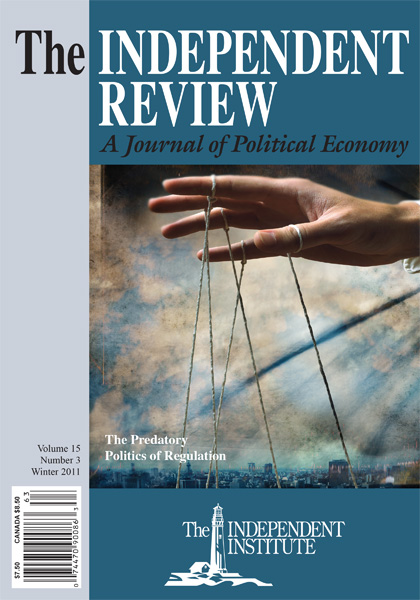Economists have not been kind to their French colleague Frédéric Bastiat (1801–50), whom they regard generally as a forceful polemicist, but a shallow economist. Contrary to that negative assessment, however, Bastiat’s writings on method, economic order, law, value, distribution, and money show that he was a fine economist.
Article
Economists have not been kind to their French colleague Frederic Bastiat (1801–50), recognizing him as a mere publicist. J. S. Mill said that he “shines as a dialectician” but lamented his “parti pris of explaining away all the evils which are the stronghold of socialists” (1972, 1665). Joseph Schumpeter calls him “the most brilliant economic journalist who ever lived” but adds, “he was no theorist” (1954, 500). Mark Blaug regards Bastiat as a great writer for the layperson and a master of sustained polemics, yet a “third-rate” theorist (1986, 15). In most textbooks on the history of economic thought, Bastiat is dismissed as a popularizer or simply ignored. Marx would find this dismissal pleasing, considering that he wrote off Bastiat with these biting words: “a dwarf economist . . . the most superficial and therefore the most adequate representative of apologetics of vulgar economy” (1975, 1:15, 100). Inasmuch as only the Austrian school of economics vindicates Bastiat—although Friedrich Hayek criticized him on monetary theory (Rothbard 2000, chap. XIV; Thornton 2001, 2002, 82; Hu¨lsmann 2007, 737)—it might be argued that this vindication has more to do with Bastiat’s vigorous libertarianism than with his intellectual contributions. Bastiat, nicknamed “the French Cobden,”
| Other Independent Review articles by Carlos Rodríguez Braun | ||
| Spring 2017 | Pride and Profit: The Intersection of Jane Austen and Adam Smith | |
| Winter 2016/17 | Piketty Misreads Austen | |
| Summer 2012 | The Values of Free Enterprise versus the New Populism in Latin America | |
| [View All (5)] | ||









